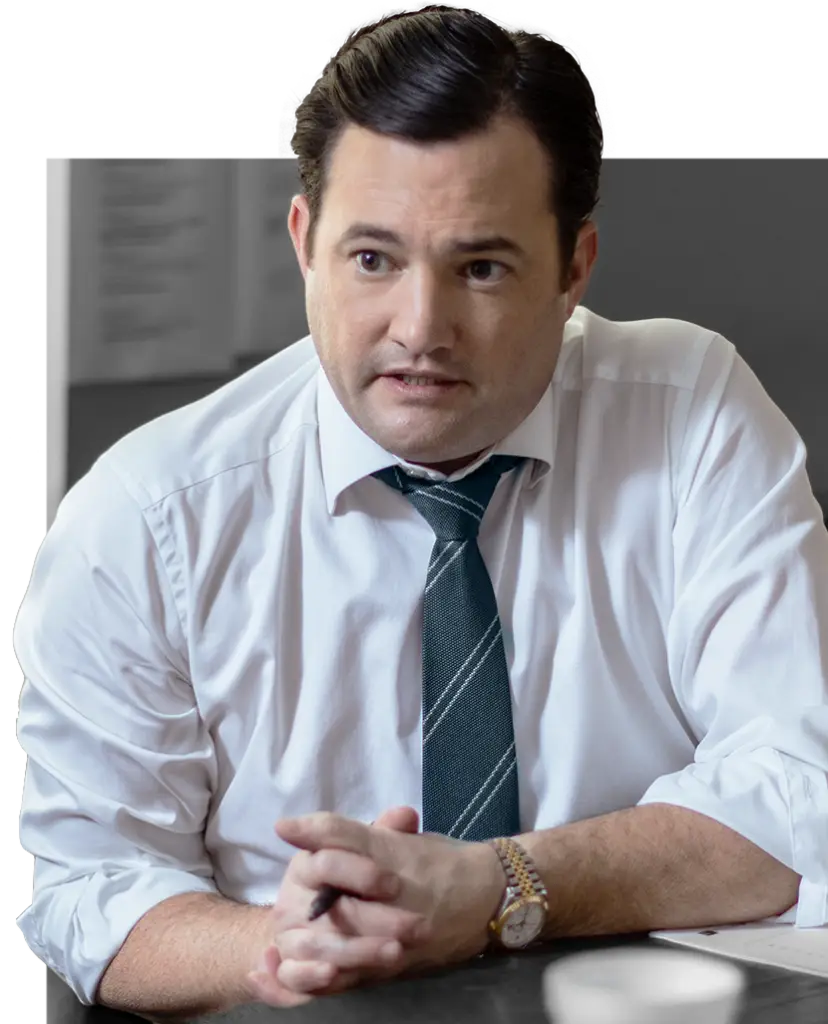Both Fight to Protect Your Rights, But They Work on Completely Different Cases
Attorneys, like physicians, specialize in distinct areas, focusing their practice on specific types of cases. That’s how legal professionals hone their knowledge and become masterful at handling complex legal issues and the toughest cases.
So, how do you know when you need an injury lawyer versus a criminal attorney?
It depends on your situation and the case you may have ahead of you. Namely:
If you have been questioned about or accused of a crime, you’ll want a criminal defense attorney.
If you have been hurt in an accident and you’re looking to file a claim for recovery, you’ll need an injury lawyer.
Elaborating more on these differences, here is a closer look at what each lawyer does, the cases they handle, and when it’s best to contact a criminal attorney versus an injury lawyer.
When You Need a Criminal Defense Lawyer
Criminal attorneys build defense cases for the accused, working to discredit prosecutors by raising reasonable doubt, pointing out procedural errors, and using other tactics. The types of defense cases these lawyers take on generally involve:
Misdemeanor criminal charges, like traffic violations, DUIs, domestic violence, and stalking
Felony criminal charges, such as assault, sex crimes, theft crimes, and white collar crimes
Federal criminal charges, including drug trafficking, fraud, and criminal offenses crossing state lines
What a Criminal Defense Attorney Does
To build a strong defense case and effectively represent those accused of crimes, criminal lawyers will do things like (but not necessarily limited to):
Meeting with the accused to discuss the charges and case: Depending on the circumstances, this initial meeting could happen in or outside of jail, as well as before or after criminal charges have been formally filed.
Investigating the case & gathering evidence: A criminal lawyer will usually pore over all the evidence gathered by police, including physical evidence, witness statements, and more. In some cases, experts may be brought in to refute the prosecutor’s evidence and allegations.
Trying to negotiate a plea before trial: Often, this involves a criminal lawyer pointing out the holes in a prosecutor’s case to try to work out a favorable deal for their client ahead of trial. This can involve working to get some charges dropped or reduced in exchange for a guilty plea and a reduced sentence.
Defending the accused in court: If pleas can’t be worked out ahead of time or if the accused does not want to take a deal, a criminal lawyer will prepare the case for trial and defend the accused before a judge and jury. The final verdict, guilty or not guilty, will determine the outcome of the case (though criminal lawyers can also help the accused pursue appeals after guilty verdicts).
A criminal defense lawyer’s goal is to achieve the best possible outcome for a client, which could be an acquittal, a dismissal of the charges, a favorable plea deal, or reduced charges and sentencing.
When to Contact a Criminal Defense Lawyer
It’s generally in your best interests to talk to a criminal defense attorney if you or a loved one has been:
Identified as a “person of interest” in an ongoing criminal investigation
Questioned by police about a crime
Detained or arrested for an alleged crime
Officially charged with a crime
Retaining a lawyer when you’re involved in a criminal investigation can help you protect your rights when the threat of criminal charges, incarceration, and other penalties hang in the balance.
When You Need a Personal Injury Lawyer
Injury attorneys build cases for those hurt by negligence, working to hold the at-fault parties accountable while striving to secure full, fair compensation for the injured. The types of cases these lawyers handle are civil claims, not criminal cases. As such, these cases proceed through an entirely different court system and generally involve:
Motor vehicle accidents, including car accidents, 18-wheeler wrecks, motorcycle crashes, and bus accidents
Dangerous products, like faulty consumer products, defective automotive equipment, and malfunctioning industrial machinery
Other injury-causing events, such as slip and falls, animal attacks, oil field accidents, construction accidents, and other incidents resulting in catastrophic injury or death
What a Personal Injury Attorney Does
To effectively represent the injured and help them seek financial recoveries, a personal injury lawyer will do things like (but not necessarily limited to):
Meeting with the injured to discuss the case: During this first meeting, an injury lawyer will ask questions about the accident, gathering information to help make liability determinations and damage estimates.
Investigating the case & gathering evidence: A personal injury attorney will carry out thorough investigations of an accident, carefully reviewing pictures, accident reports, medical records, and any other available evidence related to negligence or damages. At this point, a lawyer may also revisit an accident scene, talk to witnesses again, and/or bring in experts to help analyze and explain the evidence.
Trying to negotiate a settlement before court: Generally, this involves a personal injury lawyer working with insurance companies to try to work out a favorable settlement outside of court. Back-and-forth negotiations between insurers and attorneys are common at this phase of an injury case, but they can hit a brick wall if there are debates over who’s liable or what constitutes “fair” damages for the injured.
Representing the injured in court: When settlements cannot be reached out of court, a personal injury attorney will prepare the case for trial, representing the injured (the plaintiff in the case) before a judge and jury. If the trial ends in favor of the plaintiff, the court will grant the injured a monetary award at the end of the case. Depending on the circumstances, it may be possible for defendants in the case to appeal these verdicts in favor of plaintiffs. If that happens, an injury lawyer can also help the injured in the appellate phase of a claim.
Like a criminal attorney, a personal injury lawyer’s goal is to achieve the best possible resolution for a client. Unlike the criminal attorney, however, an injury lawyer will be focused on securing the maximum available compensation for the victim (accident survivor) or a family (who has lost a loved one to a deadly accident caused by negligence).
When to Contact a Personal Injury Lawyer
You’ll be best served by contacting an injury attorney as soon as you can after you’ve been harmed by negligence. Specifically, it’s usually wise to reach out to a personal injury lawyer ASAP after you or someone you love has been:
Taken to the emergency room or hospital after getting hurt in an accident
Diagnosed with a serious or catastrophic injury after an accident (or if a loved one dies from serious injuries sustained in an accident)
Contacted by an insurance company about an accident you were a party to
Received a settlement offer or a check from an insurance company after an accident
Retaining a lawyer for a civil case can help you protect your rights, craft a persuasive claim, and seek the compensation you may deserve when your recovery hangs in the balance.
Criminal v. Injury Lawyers: The Bottom Line
When it comes to criminal attorneys versus personal injury lawyers, the bottom line is that they both work to protect you, build a strong case, and achieve the best possible resolution for you. The key difference lies in the types of cases they focus on, with criminal attorneys defending against criminal charges in criminal courts while injury lawyers launch tort cases in civil courts. No matter which attorney you need, you’re almost always better off contacting and retaining them ASAP.









